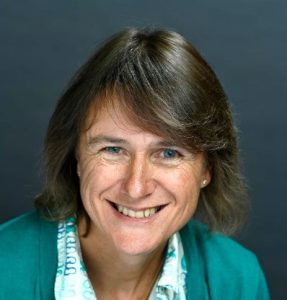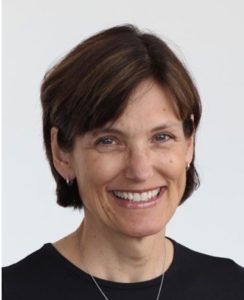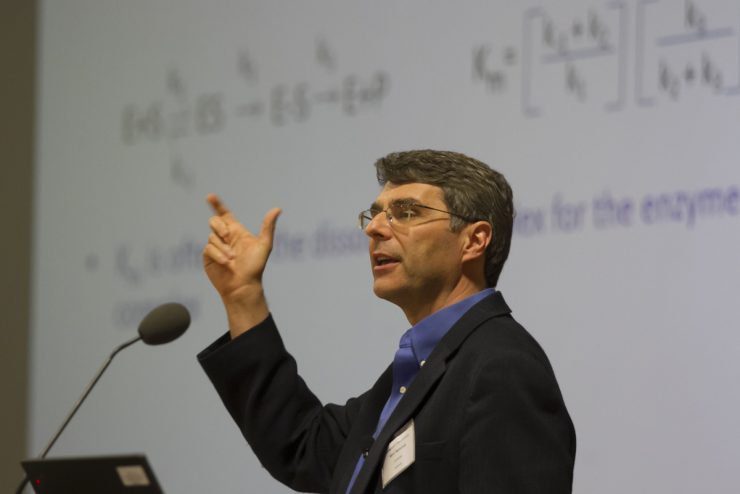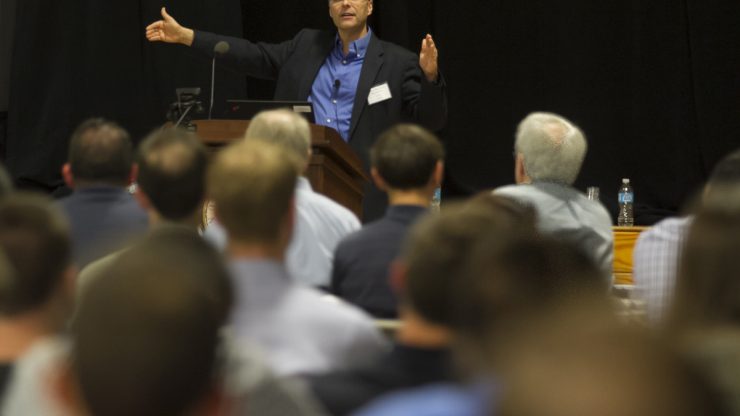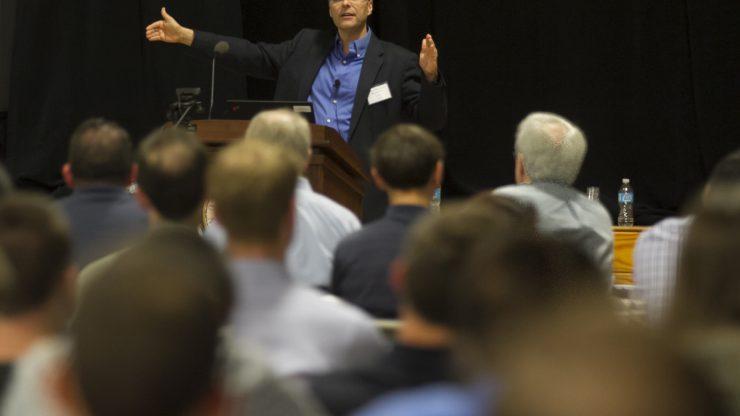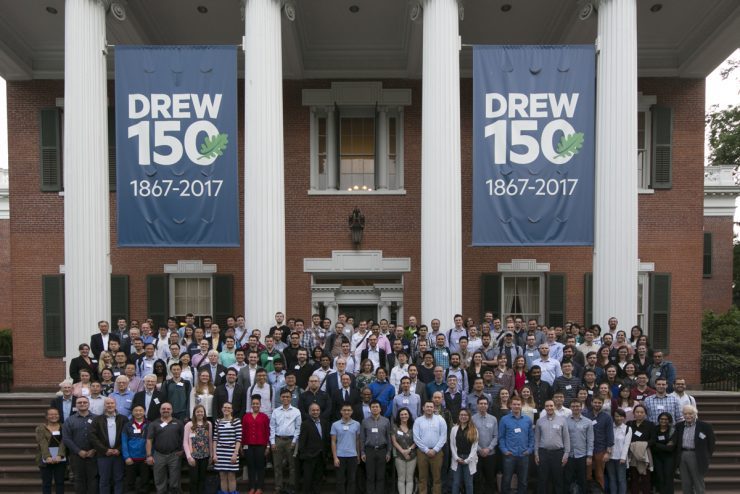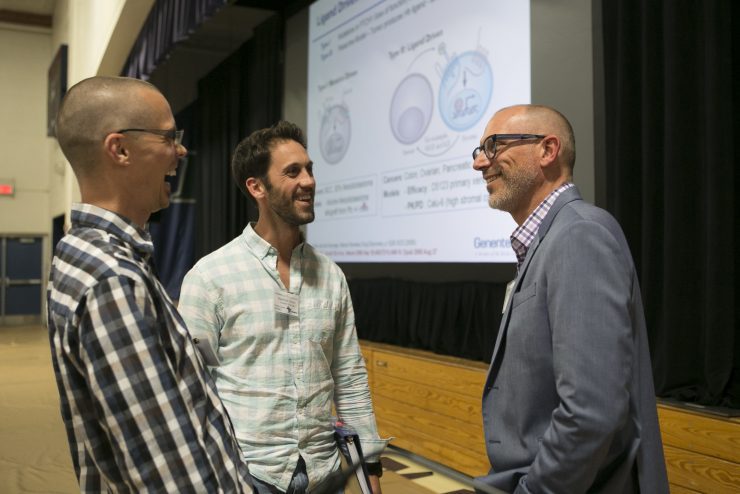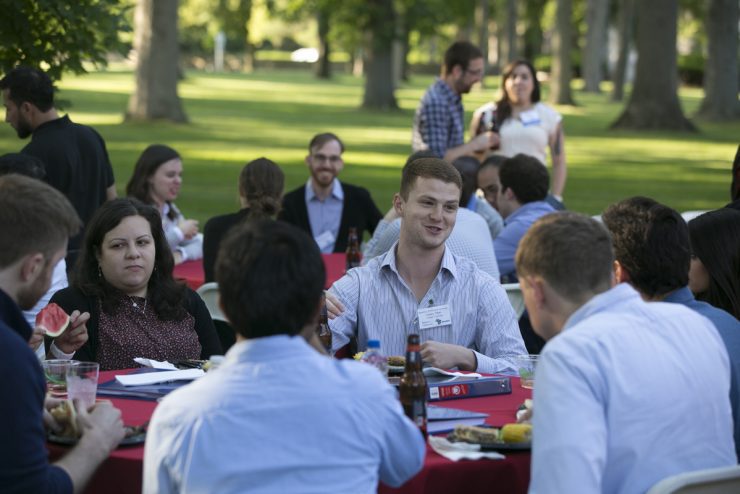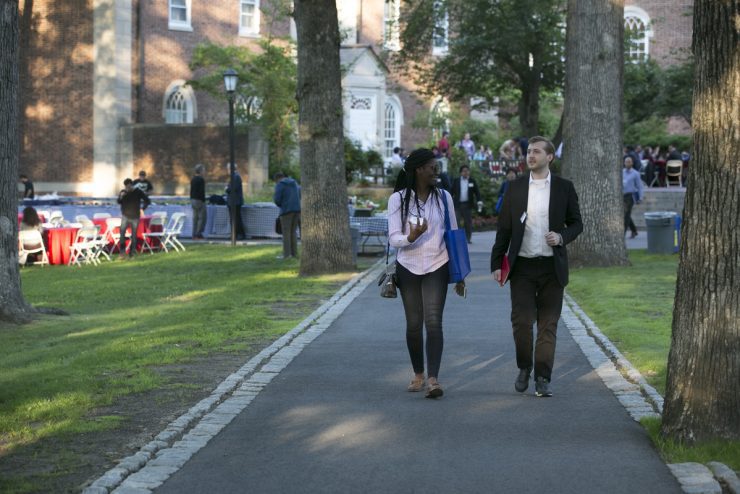We are proud to announce Drew University’s Residential School on Medicinal Chemistry and Biology in Drug Discovery (ResMed) course will be held June 9-13, 2025 (In-person and On-line options).
ResMed is a course designed for chemists and biologists interested in broadening their understanding of the fundamental principles of drug discovery research and preclinical development. Scientists from related disciplines would also gain a clearer appreciation for the processes and methods important to drug discovery through clinical development.
Options for attendance:
- In-person at the Hanover Marriott: $3,600, including all course-hosted meals and single occupancy hotel room accommodations (5 nights: check-in, June 8; check-out, June 13)
- In-person, no hotel room: $3,100, including all course-hosted meals
- On-line through live-streaming: $1,800
Please note, pricing above does not include payment transaction fees (2.5% + $.90 per transaction). Our payment system accepts American Express, VISA, MasterCard and Discover. Registration for in-person attendance will close when the hotel rooms allotted for the course are filled (anticipated to be sometime in April 2025). The last day to register for on-line attendance will be May 2, 2025 (5 pm ET).
All registrants will receive a receipt by e-mail. Please check your spam, junk, or quarantine folders if you do not receive a receipt by e-mail shortly after registering.
All registrants will receive a hard copy of the course manual and access to recorded lectures and Q&A sessions for 3 weeks after course completion (July 7, 2025). In-person attendees should plan to arrive on June 8, 2025, to receive their course manual and check in to their hotel room. On-line attendees will receive their course manual and live-stream log-in information in advance of the course.
All registered ResMed course attendees agree that all course content is intended solely for registrants of the course. The recording, capturing of images, sound or stream, downloading, rebroadcasting, or sharing the course speakers’ lectures or presentations with non-registrants is strictly prohibited.
ANTICIPATED TOPICS FOR RESMED 2025
- Principles of Med Chem
- Drug-like Properties
- Principles in Assay Development
- Hit-to-Lead in Drug Discovery
- Lead Optimization
- Proteolysis-targeting Chimeras
- Proximity-induced Drug Design
- Molecular Modeling & Structure-Based Drug Design
- Kinases
- Drug Metabolism
- Problematic Functionalities
- Pharmacokinetics & Dose Optimization
- Preclinical Toxicology
- Phenotypic Screening
- Protein-protein interactions
- Antibody-drug Conjugates
- Bioisosteres
- Covalent Inhibitors
- In Silico Tools
- Impact of AI
- Case Study Presentations
ABOUT RESMED
MISSION STATEMENT
The Residential School on Medicinal Chemistry and Biology in Drug Discovery is a graduate level course designed for chemists and biologists who are interested in broadening their understanding of the basic principles of drug discovery and early development. Scientists from related disciplines will also gain a clearer understanding of these important processes and methods. The week-long course is structured around expert lectures and case histories of successful drug discovery and development programs. Opportunities for interactions with the faculty and networking with other attendees are provided throughout the week. The purpose of the School is to provide a strong background in the principles of drug discovery and development to enhance collaborative drug discovery programs for life sciences professionals.
More about ResMed
ResMed is a week-long graduate level course organized to provide an accelerated program for medicinal chemists, biologists and other industrial and academic scientists who wish to broaden their knowledge of drug discovery and development. The School’s aim is to concentrate on the fundamentals that are useful in drug discovery spanning initial target validation through clinical development.
Most chemists and biologists have received little formal training in the range of subjects required for drug discovery. These topics include target selection, assay development, initial identification of active “hit” compounds, development of structure-activity relationships, lead optimization, pharmacokinetics, pharmacodynamics, metabolism, toxicology and clinical development.
Although drug discovery is an interdisciplinary subject, the course is more than a simple compendium of information. It will concentrate on the fundamental issues common to a wide range of therapeutic areas. The purpose of the School is to impart the basic principles needed by both chemists and biologists to pursue successful collaborative drug discovery programs.
The week-long course is structured around lectures and case histories that illustrate the discovery and development of recent successful drug discovery programs. There will be ample opportunity for questions and discussions with faculty members. The School not only provides an atmosphere of learning and understanding but also the opportunity to establish contacts with colleagues from many different organizations, which is an important component of a successful career in drug discovery. The ResMed Faculty is comprised of distinguished scientists from industry and academia with years of experience and success in drug discovery and development.
RESMED PROGRAM SCHEDULE
TBD
2025 KEYNOTE SPEAKER
TBD
OUR LECTURERS (PAST AND CURRENT)
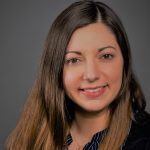 Erika Araujo– Principal Research Investigator, Arvinas
Erika Araujo– Principal Research Investigator, Arvinas
https://www.linkedin.com/in/erikavieiraaraujo
Erika received her PhD in Organic Chemistry from Boston College.
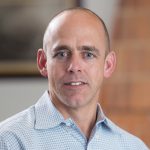 Jeffrey Axten– Senior Scientific Director and Fellow, GlaxoSmithKline Medicinal Chemistry, Medicine Design
Jeffrey Axten– Senior Scientific Director and Fellow, GlaxoSmithKline Medicinal Chemistry, Medicine Design
https://www.linkedin.com/in/jeffrey-axten-2258884
Jeffrey earned his PhD in Organic Chemistry at the University of Pennsylvania.
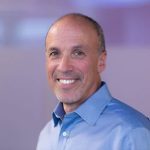 Joel Barrish– Venture Partner at RA Capital Ventures, Cofounder and Strategic Advisor at Jnana Therapeutics
Joel Barrish– Venture Partner at RA Capital Ventures, Cofounder and Strategic Advisor at Jnana Therapeutics
https://www.linkedin.com/in/joel-barrish-73a8016
Joel received his PhD in Organic Chemistry from Columbia University.
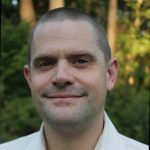 Douglas Beshore – Director, Exelixis, Bi-Coastal Cross-Functional Oncology Program Leader
Douglas Beshore – Director, Exelixis, Bi-Coastal Cross-Functional Oncology Program Leader
https://www.linkedin.com/in/douglas-beshore-5035a71a
Doug earned his PhD in Organic Chemistry at the University of Pennsylvania.
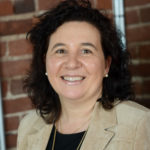 Maria-Jesus Blanco– Head of Chemical Sciences, Atavistik Bio
Maria-Jesus Blanco– Head of Chemical Sciences, Atavistik Bio
https://www.linkedin.com/in/maria-j-blanco-16262110/
Maria earned her PhD in Organic Chemistry, Universidad de Santiago de Compostela, and Post-doc in Supramolecular Chemistry, Université Louis Pasteur & Massachusetts Institute of Technology.
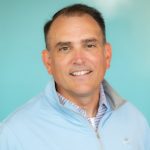 Dean Brown– Senior Vice President, Interim Head of Research, Jnana Therapeutics
Dean Brown– Senior Vice President, Interim Head of Research, Jnana Therapeutics
https://www.linkedin.com/in/dean-brown-1697523
Dean earned his PhD in Organic Chemistry from the University of Minnesota.
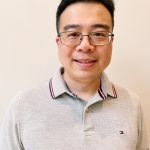 Ho Man Chan- Head of Epigenetics at AstraZeneca
Ho Man Chan- Head of Epigenetics at AstraZeneca
https://www.linkedin.com/in/ho-man-chan-a191456
Ho Man earned his PhD in Molecular Biology and Biochemistry from University of Glasgow.
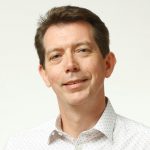 Miles Congreve- Chief Scientific Officer, Isomorphic Laboratories
Miles Congreve- Chief Scientific Officer, Isomorphic Laboratories
https://www.linkedin.com/in/miles-congreve-1991443/
Twitter @MilesCcc
Miles’ PhD is in Chemistry, University of Cambridge, and is Fellow of the Royal Society of Chemistry.
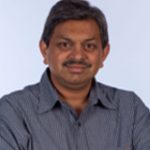 Deepak Dalvie- Vice President, Crinetics Pharmaceuticals
Deepak Dalvie- Vice President, Crinetics Pharmaceuticals
https://www.linkedin.com/in/deepak-dalvie-b5205113/
Deepak’s PhD is in Medicinal Chemistry, University at Buffalo.
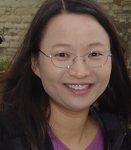 Li Di – DMPK Fellow, Recursion Pharmaceuticals
Li Di – DMPK Fellow, Recursion Pharmaceuticals
https://www.linkedin.com/in/li-di-b10a3612/
Li has her PhD in Chemistry from Brandeis University, and her Post-doc was in BioPhysics at Boston University School of Medicine.
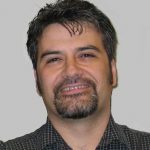 Kevin Duffy- Senior Director of Cancer Research, Head of Medicinal Chemistry at GlaxoSmithKline
Kevin Duffy- Senior Director of Cancer Research, Head of Medicinal Chemistry at GlaxoSmithKline
https://www.linkedin.com/in/kevin-duffy-4631aa26/
Kevin earned his PhD in Synthetic Organic/Heterocyclic Chemistry, Edinburgh University.
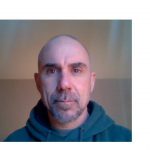 Nicholas Hastings –Senior Principal Scientist, Merck
Nicholas Hastings –Senior Principal Scientist, Merck
https://www.linkedin.com/in/nick-hastings-270b9812
Nick earned his PhD in Neuropharmacology from The Rockefeller University.
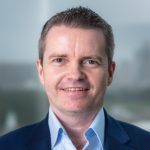 Lyn Jones – Director of the Center for Protein Degradation at Dana-Farber Cancer Institute
Lyn Jones – Director of the Center for Protein Degradation at Dana-Farber Cancer Institute
https://www.linkedin.com/in/lynhowardjones
Lyn earned his PhD in Organic Chemistry at the University of Nottingham.
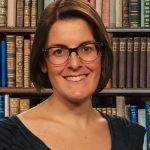 Rachel Lagiakos– Director, Schrodinger
Rachel Lagiakos– Director, Schrodinger
https://www.linkedin.com/in/helenrachellagiakos
Rachel earned her PhD in Synthetic Organic Chemistry at Monash University in Melbourne, Australia.
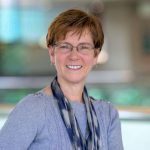 Lois Lehman-McKeeman – Vice President, Pharmaceutical Candidate Optimization (PCO), Bristol-Myers Squibb
Lois Lehman-McKeeman – Vice President, Pharmaceutical Candidate Optimization (PCO), Bristol-Myers Squibb
https://www.linkedin.com/in/lois-lehman-mckeeman-61b62b8
Lois received her PhD in Toxicology from the University of Kansas Medical Center.
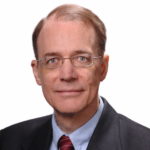 John Lowe– Consultant at JL3Pharma LLC
John Lowe– Consultant at JL3Pharma LLC
https://www.linkedin.com/in/john-a-lowe-iii-b149a93/
John’s PhD is in Organic Chemistry from the University of California- Los Angeles, and his Post-doc in Polyolefin Cyclization at Stanford University.
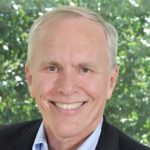 James MacDonald- Founding Partner at Synergy Partners, R & D Solutions, LLC
James MacDonald- Founding Partner at Synergy Partners, R & D Solutions, LLC
https://www.linkedin.com/in/jim-macdonald-b7b81811/
James earned his PhD in Toxicology at the University of Cincinatti.
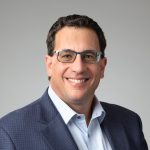 Matthew Marx– Senior Vice President of Drug Discovery at Mirati Therapeutics.
Matthew Marx– Senior Vice President of Drug Discovery at Mirati Therapeutics.
https://www.linkedin.com/in/mattmarxchemist
Matt earned his PhD in Organic Chemistry at the University of California, Berkeley, and his NIH Post-doc at the University of Texas, Austin.
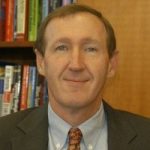 James McLeod- Chief Medical Officer and Senior VP at Galleon Pharmaceuticals
James McLeod- Chief Medical Officer and Senior VP at Galleon Pharmaceuticals
https://www.linkedin.com/in/james-mcleod-m-d-55a59b5/
Jim earned his medical degree from University of Connecticut Health Center.
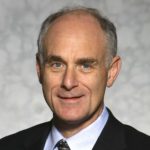 Nicholas Meanwell– Distinguished Professor, The Baruch S. Blumberg Institute
Nicholas Meanwell– Distinguished Professor, The Baruch S. Blumberg Institute
https://www.linkedin.com/in/nicholas-a-meanwell-b518973/
Nick’s PhD was in Organic Chemistry through the University of Sheffield and his Post-doc in Organic Chemistry at Wayne State University.
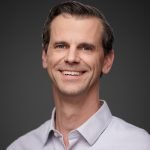 Mark Miller– Executive Director and Head of Medicinal Chemistry, Vertex Pharmaceuticals.
Mark Miller– Executive Director and Head of Medicinal Chemistry, Vertex Pharmaceuticals.
https://www.linkedin.com/in/mark-miller-24145614/
Mark earned his PhD in Chemistry at University of California- San Diego.
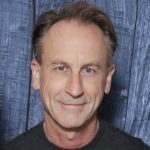 Randy Miller-Senior Principal Scientist, PPDM, Pharmacokinetics, Merck
Randy Miller-Senior Principal Scientist, PPDM, Pharmacokinetics, Merck
https://www.linkedin.com/in/randy-miller-12923630/
Randy earned his BS in Biochemistry, Penn State University.
 Ryan Moslin – Senior Director, Curie.Bio, CSO Partner Team
Ryan Moslin – Senior Director, Curie.Bio, CSO Partner Team
https://www.linkedin.com/in/ryan-moslin/
Ryan earned his PhD in Organic Chemistry at the Massachusetts Institute of Technology.
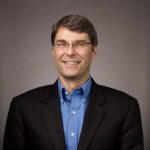 Mark Namchuk– Executive Director Therapeutics Translation at Harvard Medical School
Mark Namchuk– Executive Director Therapeutics Translation at Harvard Medical School
https://www.linkedin.com/in/mark-namchuk-8188b696/
Mark’s PhD in Bio-Organic Chemistry is from University of British Columbia, and his Post-doc in Immunology, University of California- San Francisco.
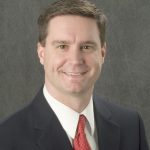 Thomas Prisinzano– Professor of Medicinal Chemistry, Department of Pharmaceutical Sciences, University of Kentucky
Thomas Prisinzano– Professor of Medicinal Chemistry, Department of Pharmaceutical Sciences, University of Kentucky
https://www.linkedin.com/in/thomas-prisinzano-ph-d-500a031/
Tom earned his PhD in Pharmaceutical Sciences at Virginia Commonwealth University, and executed his Intramural Research Training Award Fellowship at the National Institutes of Health in Bethesda, Maryland.
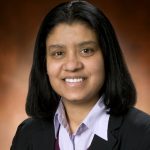 Subharekha Raghavan– Executive Director, NJ Discovery Chemistry, Merck
Subharekha Raghavan– Executive Director, NJ Discovery Chemistry, Merck
https://www.linkedin.com/in/subharekha-raghavan-01788589
Subharekha earned her PhD in Organic Chemistry at Princeton University and was a Postdoctoral Fellow at Columbia University.
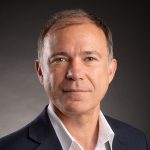 Zoran Rankovic– Director, Center for Protein Degradation, The Institute of Cancer Research
Zoran Rankovic– Director, Center for Protein Degradation, The Institute of Cancer Research
https://www.linkedin.com/in/zoran-rankovic-040633b
Zoran earned his PhD in organic chemistry University of Leeds, UK.
A.J. Roecker– Principal Scientist, Merck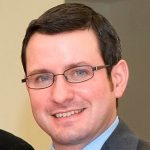
https://www.linkedin.com/in/ajroecker/
A.J. earned his PhD in Organic Chemistry at Scripps Research.
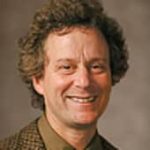 Peter Senter- Vice President of Chemistry at Seagen, Inc.
Peter Senter- Vice President of Chemistry at Seagen, Inc.
https://www.linkedin.com/in/peter-senter-80842412/
Peter’s PhD is in Chemistry from the University of Illinois, and his Post-doc in Experimental Medicine from the Max Planck Institute, Göttingen, Germany.
 Veerabahu (Veer) Shanmugasundaram – Senior Director, Novel Modalities & Next-Gen Medicine Design, Bristol Myers Squibb.
Veerabahu (Veer) Shanmugasundaram – Senior Director, Novel Modalities & Next-Gen Medicine Design, Bristol Myers Squibb.
https://www.linkedin.com/in/veerspace
Veer received his PhD from State University of New York at Buffalo.
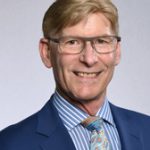 Richard Silverman- Professor of Chemistry and Professor of Biochemistry, Molecular Biology, and Cell Biology
Richard Silverman- Professor of Chemistry and Professor of Biochemistry, Molecular Biology, and Cell Biology
http://www.silverman.northwestern.edu/
Rick earned his PhD in Organic Chemistry from Harvard University, NIH, and his Post-doc, Brandeis University.
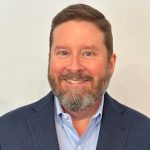 Steven Sparks– Senior Research Fellow, Arvinas, Inc.
Steven Sparks– Senior Research Fellow, Arvinas, Inc.
https://www.linkedin.com/in/steven-sparks-aa6917b/
Steven earned his PhD in Chemistry at the University of California, Irvine, and his Post-doc in Chemistry at the University of Texas at Austin.
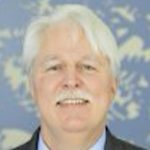 Kent Stewart- Associate Professor at Highpoint University School of Pharmacy
Kent Stewart- Associate Professor at Highpoint University School of Pharmacy
https://www.linkedin.com/in/kdstewartresearch/
Kent’s PhD is in Organic Chemistry, University of California- Los Angeles.
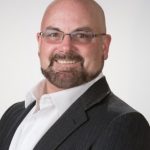 Vincent Stoll– ACOS Research Fellow and Director, AbbVie, Inc.
Vincent Stoll– ACOS Research Fellow and Director, AbbVie, Inc.
https://www.linkedin.com/in/vincent-s-stoll-0a59b1b/
Vinnie’s PhD in Mechanistic Enzymology is from the Albert Einstein College of Medicine of Yeshiva University, and his Post-doc in X-ray Crystallography, was from University of Toronto.
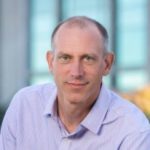 Dan Sutherlin- Vice President of Small Molecule Discovery Chemistry at Genentech
Dan Sutherlin- Vice President of Small Molecule Discovery Chemistry at Genentech
https://www.linkedin.com/in/dan-sutherlin-4966515/
Dan earned his PhD in Organic Chemistry, University of California- Los Angeles, and his Post-doc in Organic Chemistry, University of California- Berkeley.
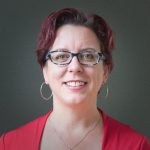 Bridget Wagner– Institute Scientist, Director of Pancreatic Cell Biology and Metabolic Disease, Chemical Biology Program, Broad Institute
Bridget Wagner– Institute Scientist, Director of Pancreatic Cell Biology and Metabolic Disease, Chemical Biology Program, Broad Institute
https://www.linkedin.com/in/bridgetwagner/
Bridget earned her PhD in Biochemistry at Harvard University.
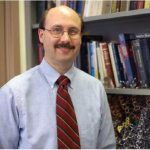 William Windsor- Visiting Research Scholar & Adjunct Professor, Biophysical Chemistry Laboratory, Chemistry and Chemical Biology Department, Stevens Institute of Technology
William Windsor- Visiting Research Scholar & Adjunct Professor, Biophysical Chemistry Laboratory, Chemistry and Chemical Biology Department, Stevens Institute of Technology
https://www.linkedin.com/in/williamthomaswindsor/
Bill’s PhD in Biophysical Chemistry/Biochemistry is from the University of Connecticut, and his Post-doc in Transcription Regulation, was at Stony Brook University.
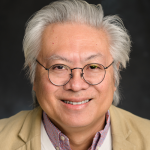 Kenny Wong- Teaching Associate Professor of Biology and Associate Chair of Graduate Studies in the Department of Chemistry & Chemical Biology (CCB) at Stevens Institute of Technology
Kenny Wong- Teaching Associate Professor of Biology and Associate Chair of Graduate Studies in the Department of Chemistry & Chemical Biology (CCB) at Stevens Institute of Technology
https://www.linkedin.com/in/blair-wood-82191212/
Kenny earned his PhD in Biochemistry from Albert Einstein College of Medicine, Yeshiva University followed by a NSRA/NIH Postdoctoral Fellowship at the University of Maryland, College Park.
 Blair Wood- Executive Director, Merck
Blair Wood- Executive Director, Merck
https://www.linkedin.com/in/kenny-wong-ph-d-0474a2a/
Blair received his PhD in Organic Chemistry at Cornell University and a postdoc at Harvard University with E. J. Corey.
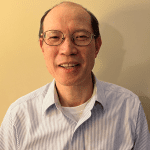 Yong-Jin Wu – Senior Scientist, Bristol-Myers Squibb, Small Molecule Drug Discovery
Yong-Jin Wu – Senior Scientist, Bristol-Myers Squibb, Small Molecule Drug Discovery
https://www.linkedin.com/in/yong-jin-wu-03458b4/
Yong-Jin earned his PhD in Organic Chemistry at Memorial University of Newfoundland.
PAST KEYNOTE SPEAKER (2024):
As Global Head of Therapeutics Discovery within Johnson & Johnson Innovative Medicine Research & Development, Emma Parmee is currently responsible for execution of the discovery portfolio and delivery of development candidates across all therapeutic modalities including small molecules, biologics, peptides, ADCs, and RNA, gene, and cell therapies.
Emma joined J&J in November 2020 following a 28-year career at Merck Research Labs (MRL), most recently serving as Head of Discovery Chemistry.Shebeganat MRL in the cardiometabolic area where she was privileged to work on the DPP-4 inhibitor project and contribute to thediscovery of JANUVIA™ (sitagliptin) for the treatment of type 2 diabetes.
Her group also delivered the small molecule CGRP antagonists, UBRELVY™ (ubrogepant) and QULIPTA™ (atogepant) used for the treatment of migraine.
Emma obtained her D. Phil. Degree in 1990 at the University of Oxford, studying the total synthesis of milbemycin natural products and then completed a NATO postdoctoral fellowship at MIT under Professor Satoru Masamune.
Emma was awarded the Thomas Alva Edison Patent Award from the R&D Council of NJ in 2007 and the SCI Gordon E. Moore Medal for Innovation in 2009, both for her contributions toward the discovery of JANUVIA™. She is also a member of the Merck team awarded the 2007 Prix Galien USA for the discovery of JANUVIA™. Emma was the recipient of the 2018 ACS Medicinal Chemistry Division Award and was inducted into the ACS Division of Medicinal Chemistry Hall of Fame in 2018. In 2022, Emma received an Arthur C. Cope Scholar award from the American Chemical Society (ACS). Her work has led to more than 40 issued US patents and more than 50 publications in peer-reviewed journals.
PAST KEYNOTE SPEAKER (2023):
Dr. Wendy B. Young
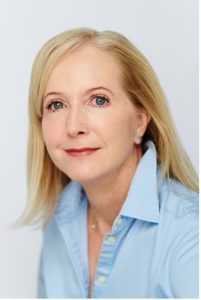
Wendy B. Young, Ph.D. is a biotechnology, pharma, and life science executive with more than 30 years of experience in the discovery and development of new medicines and research platforms.
Wendy recently moved into venture capital and company creation and is the CEO of a biotech company in stealth mode, Director and/or Scientific Advisory Board Member of several private biotechs, an Associate Editor of the Journal of Medicinal Chemistry, and an advisor at GV (Google Ventures).
From 2006-2021, she was instrumental in building the Small Molecule Drug Discovery division at Genentech. While at Genentech, she led numerous drug discovery teams, was Vice President of Discovery Chemistry and rose to Senior Vice President of the Small Molecule Drug Discovery division in 2018. Under her leadership, more than 25 clinical candidates in the areas of oncology, immunology, neurology, and anti-infectives, progressed into clinical development. Additionally, Wendy led the BTK program and is co-inventor of fenebrutinib which is currently in Phase 3 trials for multiple sclerosis. Before joining Genentech, she held medicinal chemistry leadership roles at both Celera Genomics and Johnson & Johnson.
Wendy is an inventor and author on more than 70 published patents and manuscripts. She has won numerous awards, including the 2020 National ACS Earle B. Barnes Award for Leadership and 2018 ACS Fellow. In 2019, she has been highlighted as “One of the Top 20 Women in Biopharma” by Endpoint News and in 2015 “Most Influential Women in SF Bay Area” by the San Francisco Times.
Wendy holds a B.A /M.S. in chemistry from Wake Forest University, Ph.D. in chemistry from Princeton University, and was an American Cancer Society postdoctoral fellow at Sloan-Kettering Cancer Center.
PAST KEYNOTE SPEAKER (2022):
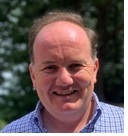 Dr. Dafydd Owen – Senior Scientific Director, Medicinal Chemistry –
Dr. Dafydd Owen – Senior Scientific Director, Medicinal Chemistry –
Pfizer Medicine Design, Cambridge, MA, USA.
Dafydd Owen has twenty-three years of experience as a medicinal chemist in the design and synthesis of drug-like molecules for Pfizer at its Sandwich UK and Cambridge MA research sites. He obtained his first degree at Imperial College in 1994 before moving to the University of Cambridge to gain a Ph.D under the supervision of Professor Steve Ley FRS in 1997. Having won a research fellowship for postdoctoral work, he spent 1998 with Professor Leo Paquette at Ohio State University. During his research career he has delivered over eighty invited lectures and is an author on over seventy research papers and patents. He has made contributions seven clinical candidates during his career at Pfizer. He has been recognized through the Pfizer’s Breakthrough Science and innovation Prize, the Pfizer Worldwide R&D People Leader Award and was also selected as an ACS Organic Division Young Industrial Investigator earlier in his career. He serves as a board member of the Structural Genomics Consortium and sits on the editorial advisory board of the Journal of Medicinal Chemistry. He currently works in an outward looking, academically collaborative group for Pfizer looking to better understand protein families and their role in human disease through chemistry. Most recently he led Pfizer’s oral protease inhibitor program
that ultimately delivered PAXLOVID, the world’s first oral anti-viral therapy for the treatment of COVID-19.
PAST KEYNOTE SPEAKER (2021):
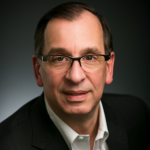 Michael J. Sofia, Ph.D. – Co-founder and Chief Scientific Officer of Arbutus Biopharma, Inc. a company focused on the discovery and development of therapies to cure hepatitis B. Previously Mike was Sr. Vice President of Chemistry at Pharmasset, Inc. Mike has also held research and research management positions at Gilead Sciences, Bristol-Myers Squibb, Transcell Technologies and Eli Lilly and Company.
Michael J. Sofia, Ph.D. – Co-founder and Chief Scientific Officer of Arbutus Biopharma, Inc. a company focused on the discovery and development of therapies to cure hepatitis B. Previously Mike was Sr. Vice President of Chemistry at Pharmasset, Inc. Mike has also held research and research management positions at Gilead Sciences, Bristol-Myers Squibb, Transcell Technologies and Eli Lilly and Company.
Mike Sofia received his BA in chemistry from Cornell University, his Ph.D. from the University of Illinois and was an NIH postdoctoral fellow at Columbia University with Gilbert Stork.
Mike has introduced numerous drugs into clinical development for the treatment of infectious diseases and inflammatory diseases. He has authored over 110 publications, 15 book chapters and is an inventor on more than 54 US patents. He is the principle inventor of sofosbuvir currently marketed as the backbone of HCV curative therapies Sovaldi®, Harvoni®, Epclusa® and Vosevi®.
Mike has received numerous awards for his work on hepatitis C including the 2015 Economist Innovation Award, the 2015 ACS Heroes of Chemistry Award, 2016 IUPAC-Richter Prize, the 2016 Lasker-Debakey Award in Clinical Medical Research, the 2017 Gertrude Elion Award from the International Society for Antiviral Research, the 2017 New Jersey Science and Technology Medal and the 2018 IS3NA John Montgomery Award. In 2017 he was inducted into the American Chemical Society Medicinal Chemistry Hall of Fame.
PAST KEYNOTE SPEAKER (2019): 
View Ann Weber and colleague Nancy Thornberry’s seventeen minute TEDx NJIT ‘Bench to Bedside’ talk here.
Ann Weber, PhD– Senior Vice President of Drug Discovery of Kallyope Inc., a New York City-based biotechnology company focused on harnessing the potential of the gut-brain axis. In this role she is responsible for translating opportunities arising from the company’s state-of the-art technology platform into drug discovery and development programs. She retired in November 2015 from Merck & Co., where she most recently held the position of Vice President – Lead Optimization Chemistry at Merck Research Laboratories (MRL), responsible for the discovery of innovative therapeutic agents across disease areas. She joined MRL as a Senior Research Chemist in 1987.
Dr. Weber’s research interests include the design and synthesis of ligands for G-protein coupled receptors, ion channels and enzymes. Her work has led to over 40 development candidates, including JANUVIA® (sitagliptin), a treatment for patients with Type 2 diabetes (T2DM), JANUMET®, a fixed dose combination of sitagliptin and metformin, and MARIZEV® (omarigliptin), a once-weekly treatment for T2DM approved in Japan. An additional drug candidate, vibegron for the treatment of overactive bladder, was approved in Japan in September 2018 and is in late stage clinical trials in the US.
Dr. Weber is the author or co-author of over 90 publications. She is co-inventor on over 35 issued US patents. Her awards include the Robert M. Scarborough Award for Excellence in Medicinal Chemistry (American Chemistry Society (ACS)), the Heroes of Chemistry Award (ACS), the Discoverer’s Award (PhRMA), recognizing scientists whose work has been of special benefit to humankind, and a Directors’ Award, the highest honor that Merck confers on its employees. She is a 2013 Liberty Science Center Women in STEM Honoree and the recipient of the 2015 Gift of Mentoring Award from the Metro Women Chemists Committee. In 2016 she was named to the Medicinal Chemistry Hall of Fame (ACS). She was the 2017 recipient of the Perkin Medal (Society of Chemical Industry American Section), considered the highest honor given in the US chemical industry. She received the 2018 ACS Award for Creativity in Molecular Design and Synthesis.
Dr. Weber is passionate about advancing women in chemistry and is an associate member of the ACS Women Chemists Committee.
Before joining Merck, Dr. Weber obtained her B.S. degree in chemistry summa cum laude from the University of Notre Dame. She earned her PhD degree from Harvard University, studying synthetic organic chemistry in the laboratories of Professor David A. Evans.
PAST KEYNOTE SPEAKER (2018):
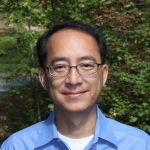 Donald C. Lo, PhD– Director, Therapeutic Development Branch, National Center for Advancing Translational Sciences (NCATS) of the National Institutes of Health, presents “Reward and Risk in Translational Science”.
Donald C. Lo, PhD– Director, Therapeutic Development Branch, National Center for Advancing Translational Sciences (NCATS) of the National Institutes of Health, presents “Reward and Risk in Translational Science”.
Donald Lo joined NIH/NCATS in 2018 following a 25-year career in academia, biotech, and disease research- and patient care-focused non-profit foundations. Don received his BS degree in biology from the California Institute of Technology, then went on to Yale University for graduate studies, where his PhD research in molecular and cellular physiology focused on biophysical studies on the structure-function relationship for the nicotinic acetylcholine receptor. He then pursued postdoctoral studies on de-differentiation and re-differentiation of stem cells in vertebrate limb regeneration at the Ludwig Institute for Cancer Research at University College London. In 1992 he was recruited to join the faculty of the then new Department of Neurobiology at Duke University Medical Center, where Don focused on neurotrophin and cytokine signaling in regulating the form and function of neuronal circuits and the intrinsic electrical excitability of neurons. In the late 1990s, Don spun out from Duke the biotech company Cogent Neuroscience, based on 3D intact brain tissue platform approaches for the discovery and development of new drugs for Huntington’s disease, Alzheimer’s disease, glaucoma, and stroke. The company grew to 85 scientific and business personnel, and established 2 R&D partnerships with a major pharmaceutical firm. Don served as Cogent’s Chief Scientific Officer until 2002 when he returned to Duke to establish the Center for Drug Discovery on a collaboration model that over a decade partnered with some 40 academic institutions and over 20 biotech and major pharmaceutical firms. In 2009 Don co-founded and served as Vice President for HD Reach, a 501(c)(3) organization dedicated to bringing quality healthcare, education, and social assistance to all patients and families affected by Huntington’s disease across urban as well as rural areas of North Carolina. In addition, for the last decade he was the lead scientific advisor for the Accelerate Brain Cancer Cure foundation focused on taking a venture-philanthropic approach towards catalyzing translational advances in the treatment of adult and pediatric glioma. Don has served on a wide range of review boards in the US and internationally, including for the NIH, the Alzheimer’s Drug Discovery Foundation, the European Commission, and the National Medical Research Council of Singapore, and was co-founding course director for Translational Research for CNS Diseases at the Neuroscience School of Advanced Studies in Siena, Italy. He is the recipient of numerous awards including the Alfred P. Sloan Fellowship, the McKnight Scholar Award, the Klingenstein Fellowship Award, and the Huntington’s Disease Society of America NC Chapter Award; and has authored 90 peer-reviewed papers, reviews, books, and book chapters.
SCHOLARSHIPS
The generous support of several pharmaceutical companies allows ResMed to offer grants to cover tuition for the course. Eligible candidates are graduate students or post-doctoral scholars either in medicinal chemistry, pharmacology, biology, or related fields within an academic setting. Scholarship applications will be accepted between January 6, and February 28, 2025 (5 pm ET).
If interested in a scholarship, please send a letter of interest via email, to [email protected] and [email protected], including a copy of your CV or resume. Please indicate your desire to attend in person or online.
A letter of recommendation from your research supervisor should then follow shortly, directly from him/her, not via applicant’s email. All application materials should be received by the deadline. A scholarship application without a letter of recommendation will be considered incomplete. Scholarship winners will be notified mid-March 2025.
FEEDBACK FROM PREVIOUS ATTENDEES
“Loved the course. Gained a lot in 4 1/2 days. The whole experience was wonderful. I will recommend the course to all my colleagues who haven’t taken it.”
“By far the most useful short course/seminar that I have been to.”
“Very helpful, practical, informative, a must for all newcomers to the pharma industry.”
“Overall, a great experience. Talks, both lectures and case studies, were current and very useful. I learned a lot and will apply it daily at work.”
“Everyone needs to take this course.”
